Exclusive! Parvathy Thiruvothu: Wonder Women is emblematic of the changes that are happening within the industry
Parvathy Thiruvothu talks about her upcoming OTT release Wonder Women, how it’s important to consistently make films that address women’s struggles and more
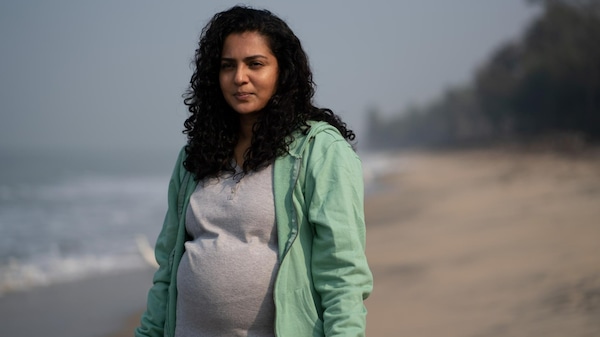
Last Updated: 05.27 PM, Nov 16, 2022
It’s surprising when Parvathy Thiruvothu chooses to pick Anjali Menon’s Koode, which had her playing a character that was emotionally and physically scarred, as her previous feel-good movie over Qarib Qarib Singlle. But this shouldn't come as a surprise. The Malayalam star’s choices have always been subversive and it’s fair to say, that’s also the prime reason she has been able to herald in a massive change in terms of how people not just the audience, but also her colleagues, have begun viewing cinema in the better part of the past decade.
In an exclusive interview with OTTPlay, Parvathy talks about her latest film Wonder Women, how important is it for her to have co-stars who are sensitive about her character’s journey and her takeaway from the movie, which will begin streaming on Sony LIV from November 18.
How does it feel being part of a feel-good movie after a while? It’s been almost five years since Qarib Qarib Singlle.
Qarib Qarib Singlle, for me, is not a feel-good movie because it is so much deeper than that. But it does come across like that for everyone who watches it. For me, Anjali’s Koode, which technically a lot of people won’t consider as feel good as it has a lot of depth and spaces that are uncomfortable, is a feel-good movie that I keep going back to. There’s so much healing a feel-good film does, and Koode does that for me.
I feel Anjali’s Wonder Women goes way beyond a feel-good movie. It’s like a huge tsunami wave of many kinds of changes that are happening within the industry; it’s emblematic of that. I love the fact that I am part of the gang.
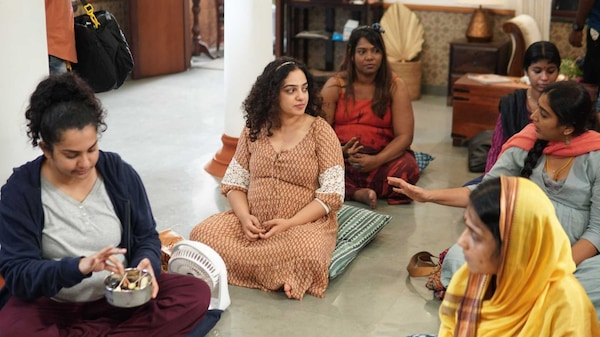
It’s also about the characters putting aside their differences, understanding and supporting each other. What is your view on empathy and empowerment going hand in hand?
I don’t think there can be true empowerment without empathy, and there can’t be enough empathy in the world without true empathy. And the true empathy part of it comes if you have this massive scale of empathy within you but you are not giving it yourself first; in that case you are failing at it. You always talk about having empathy for others. We consider that to be an amazing quality, but I have often noticed, in myself and in many others, that somehow giving it to others is the only thing that is discussed. We are often so judgmental, harsh and worse towards ourselves. If we think for a moment if it was someone else, would we be so harsh at directing our words to them? So, shouldn’t we first be directing empathy towards ourselves? Sometimes we need friends and others to teach us that; to break us from that pattern.
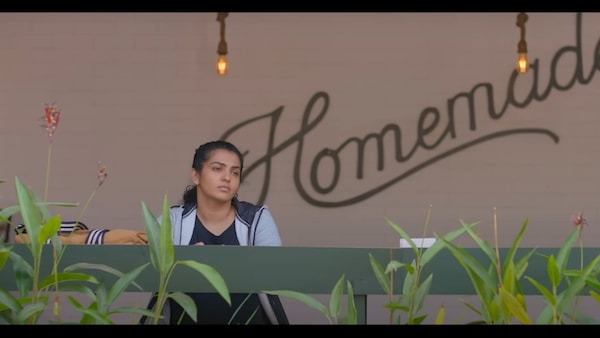
So, yes, for true empowerment to happen, you need empathy. For true empathy to happen, you have to learn to forgive yourself for the cards you have been dealt with. Wonder Women is a great example of that. None of these people who are coming to Sumana, including Nadiya ma’am’s character Nanditha who runs the place, were prepared for the cards they have been dealt with. But what they make of it and how they are steadfast with what they want to do by moving forward are what’s vital. When you watch the film, there are elements embedded in what Nanditha’s character says. For instance, how we shrink and expand when there is fear is so important to notice.
I feel like that a feel-good movie comes with feel-good factors but when it comes with things that make you think of later in life, then you can relate to it better. That way, Wonder Women has done its job really well.
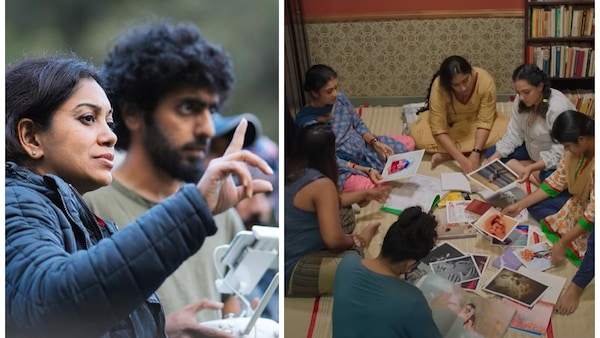
Your character Mini is someone who has pent-up anger because she doesn’t want to put herself in a position to open up and receive help. How important is it for you to have co-stars who are more sensitive to your character’s journey?
What’s interesting, at least when you look at acting, I don’t think it helps us. They can choose to have empathy when they are reading about my character, but what we do in the moment is the relationship between my character and the role they are embodying.
And truly most of the time, we may not be having that empathy in the beginning. You are like, ‘What a difficult person?’, ‘Why do they have to be like this?’, ‘Why can’t they just be pleasant?’ There are so many thoughts that we get to have about people we just meet. This happens on a daily basis. For instance, when we are standing in a queue in the airport and someone is rushing from behind, I would think, ‘What’s the hurry? We are all going on the same flight. Be nice.’ We don’t know where they are getting to or where they are coming from. If we were in their position, we’d want everybody to understand. It’s the same thing on the film set. In Wonder Women, when Nora and everyone come to Sumana and get to meet Mini, they all start reacting to her and eventually understanding her. And in that understanding, what space they end up holding to Mini and how it affects her is what Wonder Women’s story for my character. This doesn’t always mean that people have to suddenly change, bloom and become an altogether different personality, the moment they are loved. There is a personality Mini comes with and that is who she is from all that we understand from the end of the film.
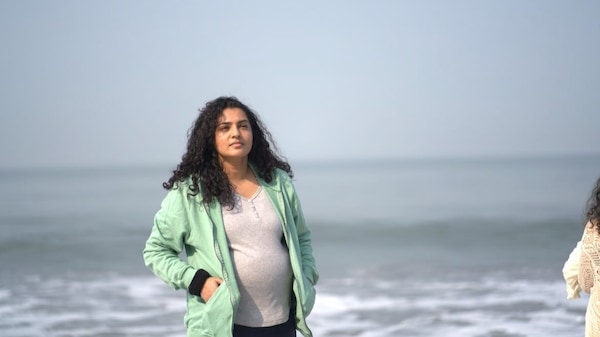
But there is definitely a journey there for Mini because whether she likes it or not, there is an education happening – be it about pregnancy or how to find your people in life.
We are now living at a time where people are choosing to be childfree, there’s open discussions about prenatal and postpartum depression and news about surrogacy is widely talked about. So, how important is it for films that deal with struggles of women and motherhood to also discuss this consistently?
I think it’s important to also think about our vocabulary. During the promotions of Wonder Women is when I chose to use the word ‘vocabulary’ a lot. It’s an introspection on my own behaviour. I realised that when we were sitting with seven women who had their own journeys in Wonder Women along with me, they all had a one-degree different experience of what they take away from it. And that’s cool because we all needn’t have the same experience. But certain words can be more defining or others jarring.
For example, some people with a child preferred being called a parent or a mother or a father, while some are like, ‘Just call me a parent. I don’t like being called a mother’. Some are like, ‘Don’t use the word childfree’, while others say, ‘What’s wrong with that? That’s how I introduce myself as’. So, you start this chain of events where you suddenly realise what’s working for me is triggering someone else. So, you sit and ask, ‘Why is it triggering you? Do you want to share that? Or examine that on your own?’ I feel these things don’t need a finality to it, but we need these conversations to happen. We need these words to make people uncomfortable, we need to understand that there are people who get defined over and over without them ever asking for it.
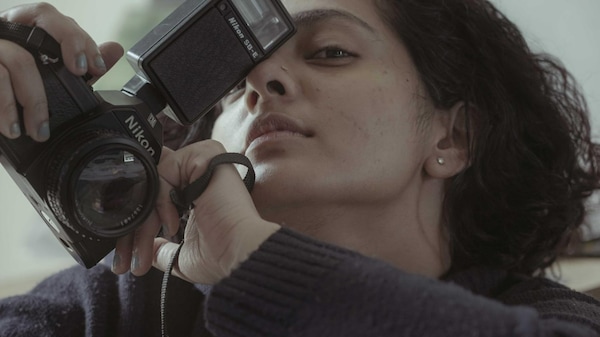
Let’s say, I am Parvathy and there isn’t much that I want to share about my personal life to people. But I am already boxed in as many things. I didn’t ask for it. But in limited spaces where I get to exercise my freedom and where I want to reveal myself, I get to choose adjectives and words for myself – who I am. But I wouldn’t even have growth there if I didn’t have these people in my life; like the wonder women I worked with. Because they would use words and explain what parenthood is to them. I find myself in a constant flux. Trust me, maybe 10 years ago, all I could think about was being a mother and right now, maybe I am in a completely different plane. It’s shocking but I am so ready for the shocking change that can happen in another 10 years.
To answer your question about how important it is for these conversations to keep happening, forget making a huge statement or headlines, it’s those little moments of discomfort that will help you decide what works for you and what doesn’t. If we are all able to do that in a collective space, isn’t that how we all get to a better space in society eventually?
Subscribe to our newsletter for top content, delivered fast.

